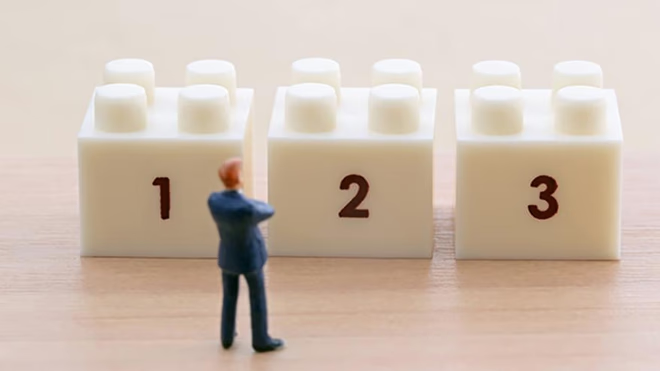Hello. I'm Oyabu, the director.
This may be a bit sudden, but what kind of person is your ideal director?
What does it take to be a director?
I'm always thinking about it.
Of course, I think practical skills are essential, but I also think the quality of a director's work depends on the way they think and the attitude they have.
So, I suddenly wondered what kind of person an ideal director would be, and so I decided to organize my thoughts and write them down so that I can get closer to that ideal. After summarizing the various thoughts that came to mind, five main points emerged.
1. People who can put their own ideas first
The director is in a position where he or she receives a variety of opinions from many people involved in the project. In that situation, I think it is important to have a firm grasp of "your own ideas."
If you give easy answers or simply accept everything, the opinions of those around you will just pass through the director and be incorporated into the work, and the director will become nothing more than a liaison officer. The opinions of clients and production members are important, but if you just let them go, I feel like the position of director will become unnecessary.
When you receive advice from customers or other members of the production team, you should first think about what you want to do. This will allow you to add something to their opinion or come up with a better idea. Of course, if your thoughts match those of the people around you, that's fine.
Whether it's adding something to the opinions of those around you, taking a different direction, or agreeing, by the director communicating with those around him, saying things like, ``This is what I want to do,'' or ``This is what I think too, so it's fine,'' surely it will be possible to come up with a meaningful answer that everyone can agree on?

The director is not only in charge of management, but also the person who gives answers.
Be sure to listen carefully to the opinions of those around you and come up with an answer that satisfies everyone.
That's the director's role.
If we compare it to a train station, it would be like a terminal station that acts as a hub rather than a stop along the way, and where routes sometimes need to change.
2. People who "always have a case in mind"
Although he is a director with many projects in hand, he naturally has time away from work.
Even in times like these, I think it's important for a director to keep the project he or she is in charge of in the back of their minds. (Even if it's just a little, it's enough.)
Even when I'm not concentrating, I sometimes come up with good ideas or solutions to problems. I think that this idea could be used for that project, or a good solution suddenly pops up when I have the time and mental space.
I think that if you can "keep it in mind," you will be able to do these things naturally without forcing yourself.
Of course, you don't need to be on standby 24 hours a day.
Be a little mindful. Don't put everything on hold, but keep a "case box" somewhere in your mind. I feel like having that mindset helps the cases move forward smoothly without any hitches.
3. People who can simulate the future
The director is in the position to give instructions to the production team and make requests to the client. Therefore, he needs to simulate all possible situations before any of the other team members and act at the appropriate time.
For example, if you have a date when you need to complete a design.
In order to complete the project by that date, you need the ability to organize and summarize all the necessary items, such as what needs to be done, who needs to work for how long, etc.

Depending on the situation, you may have to assemble something without any necessary information or materials. Furthermore, if you are a "simulation lover" who thinks about what to do after it's complete, and what comes after that... then you might be suited to being a director.
The ability to create a solid schedule leading up to release at the beginning of a project.
And when an emergency occurs, we need the ability to respond flexibly and make adjustments.
I believe that our ability to utilize our simulation capabilities to overcome these challenges will determine the outcome of the project.
4. Are you rather a good-natured person?
"Nice-natured" is a bit of a general term, so I'll try to explain it with three keywords.
Be kind and positive
If a client or production team member is in trouble, is there anything I can do as a director to help them? Is there anything I can do to help them? It is also important to think proactively about such things. (Don't forget to be kind.)
I also think that it is the director's role to think of ways to deal with situations calmly, without getting angry or upset, when production members make mistakes or things don't go smoothly (stay positive).
If the director is disruptive, the project will be disrupted, so I think it's important to always be gentle and open-minded when interacting with clients and production team members.
First of all, don't refuse
When working on a project, sometimes clients will make unreasonable requests. Even in those cases, instead of immediately saying "No," try to think about whether there is a way to do it. Even if it is difficult to fully realize it, there may be an alternative solution.
Try to be other-centered
When people around you present you with opinions that differ from your own or ideas that you cannot agree with, instead of immediately rejecting them, try to think from the other person's perspective, asking yourself, "Why does this person think this idea is good?" By getting to the bottom of the reason, you may come up with a new, good idea that both parties can agree on. I think it is important not to always think that your (the director's) ideas are the correct answer.
In this way, it is important to accept the other person's opinion and think about the future with your own will. It might be better to be somewhere between "kind-hearted" and "reliable", or more like "kind-hearted".
5. Someone who can pick things up if they throw them away
When work gets tough, I think everyone, not just directors, can feel like "I'm about to give up" or "I want to give up..." However, I think that as a director, you have to be mentally strong in those situations.
Of course, we are human, so we have our limits. So I think the important thing is not to "not throw things away" but to "be able to pick them up properly." If you can pick them up properly later, I think it's okay to throw everything away at once.
This may sound harsh, but I think you'll get better results if you clear your mind and start again, rather than continuing to work in an unreasonable state.
If the director gives up, the project is over. I think it is also important for a director to be able to control their own physical and mental health and to approach their work in a relaxed and balanced way.
The majority of the work of a director involves interacting with people, so it is a job that is directly influenced by the person's temperament and way of thinking.
This time, I thought again about what I think an "ideal director" would be, but what I've listed here is just my ideal, and I think other people have their own ideals. When I think about it that way, maybe I'm the only one who can become the "ideal director" I aspire to be. (Of course, right now I'm still a long way from my ideal. lol)
But I think that's exactly why I can create value that is unique to me.
I hope to continue to increase my "value as a director" through these projects.

